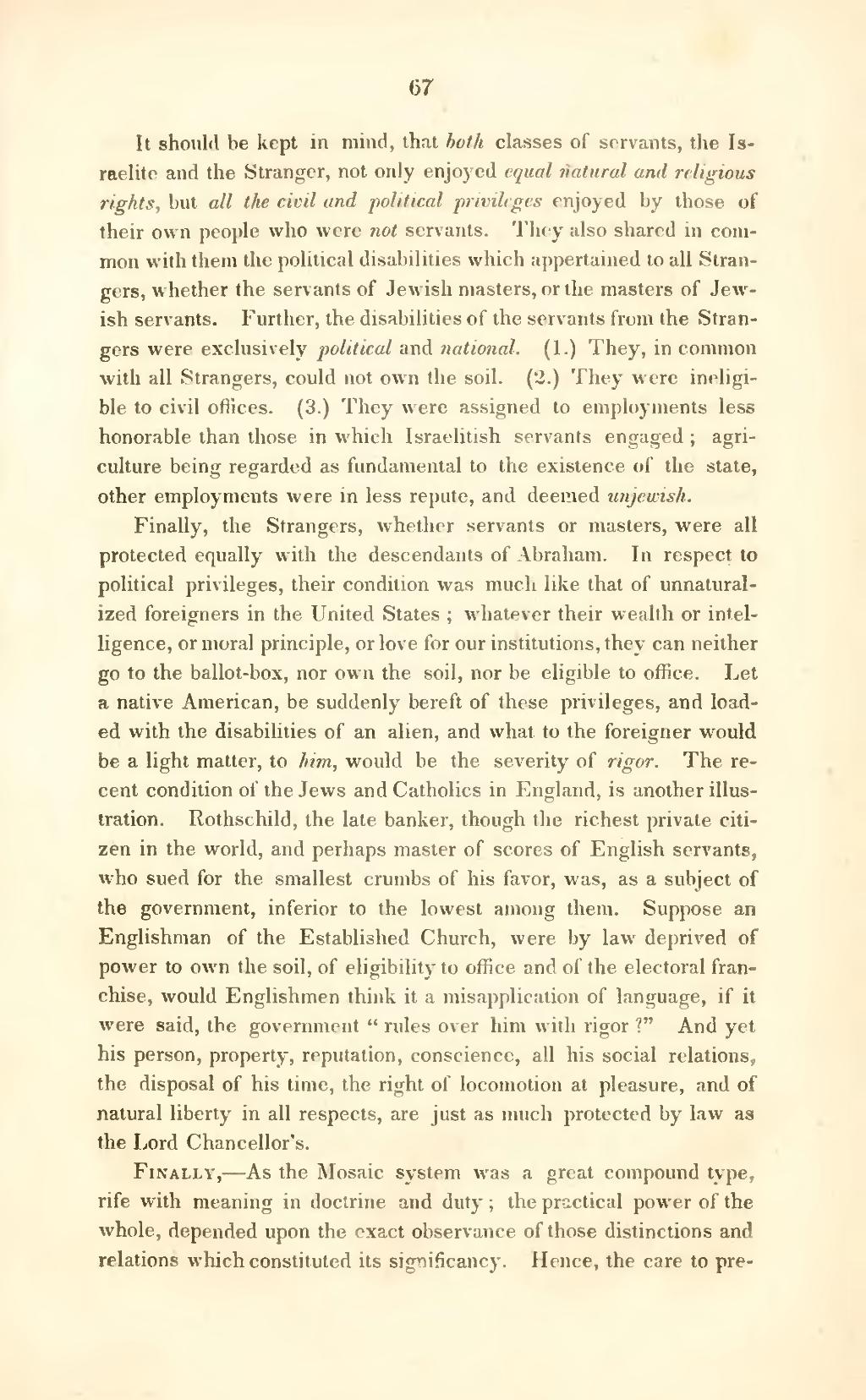67
It should be kept in mind, that both classes of servants, the Israelite and the Stranger, not only enjoyed equal natural and religious rights, but all the civil and political privileges enjoyed by those of their own people who were not servants. They also shared in common with them the political disabilities which appertained to all Strangers, whether the servants of Jewish masters, or the masters of Jewish servants. Further, the disabilities of the servants from the Strangers were exclusively political and national. (1.) They, in common with all Strangers, could not own the soil. (2.) They were ineligible to civil offices. (3.) They were assigned to employments less honorable than those in which Israelitish servants engaged; agriculture being regarded as fundamental to the existence of the state, other employments were in less repute, and deemed unjewish.
Finally, the Strangers, whether servants or masters, were all protected equally with the descendants of Abraham. In respect to political privileges, their condition was much like that of unnaturalized foreigners in the United States; whatever their wealth or intelligence, or moral principle, or love for our institutions, they can neither go to the ballot-box, nor own the soil, nor be eligible to office. Let a native American, be suddenly bereft of these privileges, and loaded with the disabilities of an alien, and what to the foreigner would be a light matter, to him, would be the severity of rigor. The recent condition of the Jews and Catholics in England, is another illustration. Rothschild, the late banker, though the richest private citizen in the world, and perhaps master of scores of English servants, who sued for the smallest crumbs of his favor, was, as a subject of the government, inferior to the lowest among them. Suppose an Englishman of the Established Church, were by law deprived of power to own the soil, of eligibility to office and of the electoral franchise, would Englishmen think it a misapplication of language, if it were said, the government "rules over him with rigor?" And yet his person, property, reputation, conscience, all his social relations, the disposal of his time, the right of locomotion at pleasure, and of natural liberty in all respects, are just as much protected by law as the Lord Chancellor's.
Finally,—As the Mosaic system was a great compound type, rife with meaning in doctrine and duty; the practical power of the whole, depended upon the exact observance of those distinctions and relations which constituted its significancy. Hence, the care to pre-
